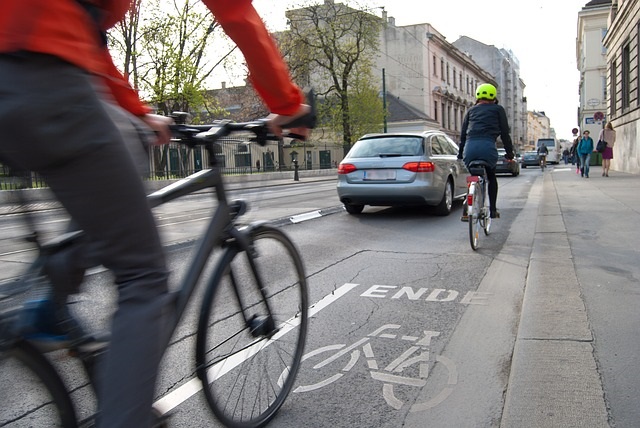Cycling is the mode of transport with the greatest health benefits
Posted on in Cycles News
A study carried out in seven European cities highlights the role of active transport in good mental health and self-perceived health.
A new study led by the Barcelona Institute for Global Health (ISGlobal) has concluded that cycling is the mode of transport associated with the greatest health benefits: better self-perceived general health, better mental health and fewer feelings of loneliness.
The study formed part of the EU funded PASTA (Physical Activity Through Sustainable Transport Approaches) project and was carried out in seven European cities: Antwerp, Barcelona, London, Örebro, Rome, Vienna and Zurich.
 A baseline questionnaire was completed by more than 8,800 people on transport and health that included questions about what transport modes they used, how often they used the different transport modes, and how they perceived their general health. The mental-health section of the survey focused on the four major dimensions of mental health (anxiety, depression, loss of emotional control, and psychological well-being), vitality (energy level and fatigue) and perceived stress. The survey also asked about participants social relations, including questions about loneliness and contact with friends and/or family.
A baseline questionnaire was completed by more than 8,800 people on transport and health that included questions about what transport modes they used, how often they used the different transport modes, and how they perceived their general health. The mental-health section of the survey focused on the four major dimensions of mental health (anxiety, depression, loss of emotional control, and psychological well-being), vitality (energy level and fatigue) and perceived stress. The survey also asked about participants social relations, including questions about loneliness and contact with friends and/or family.
The transport modes assessed in the study were car, motorbike, public transport, bicycle, electric bicycle and walking. The effects of these transport modes were analysed using both single- and multiple-mode models.
The findings, published in Environment International, show that cycling yielded the best results in every analysis. Bicycles were associated with better self-perceived general health, better mental health, greater vitality, lower self-perceived stress and fewer feelings of loneliness. The second most beneficial transport mode, walking, was associated with good self-perceived general health, greater vitality, and more contact with friends and/or family.
The study's conclusions regarding transport modes other than cycling and walking were not entirely conclusive. Driving and public-transport use were associated with poor self-perceived general health when the transport modes were analysed separately, but this effect disappeared in the multiple-mode analyses commented Ávila Palencia. Cars were also associated with fewer feelings of loneliness in all of the analyses. This result is most likely due to the fact that the study population drove very infrequently and most journeys by car were probably for social purposes, such as visiting a family member or a friend, explained the researcher.
The findings were similar in all of the cities we studied. This suggests that active transport especially cycling should be encouraged in order to improve health and increase social interaction, commented Ávila Palencia. She added that the percentage of people who cycle remains low in all European cities, except in countries like the Netherlands and Denmark, which means that there is plenty of room to increase bicycle use.
Nieuwenhuijsen, coordinator of the study and director of the Urban Planning, Environment and Health Initiative at ISGlobal, commented: "Transport is not just a matter of mobility; it also has to do with public health and the well-being of the population". The study's findings, he noted, show "yet again that an integrated approach to urban planning, transport planning and public health is needed in order to develop policies that promote active transport, such as adding more segregated cycle lanes in Barcelona, which are transforming the city into a better environment for cyclists."
Other studies conducted as part of the PASTA project have also highlighted the health benefits of cycling. One study found that cyclists have a lower body mass index than non-cyclists and another suggested that as many as 10,000 deaths could be prevented by expanding cycling networks in European cities.
Useful links
If you have any other queries please contact us.
The Cycling Experts is brought to you by the Association of Cycle Traders.


